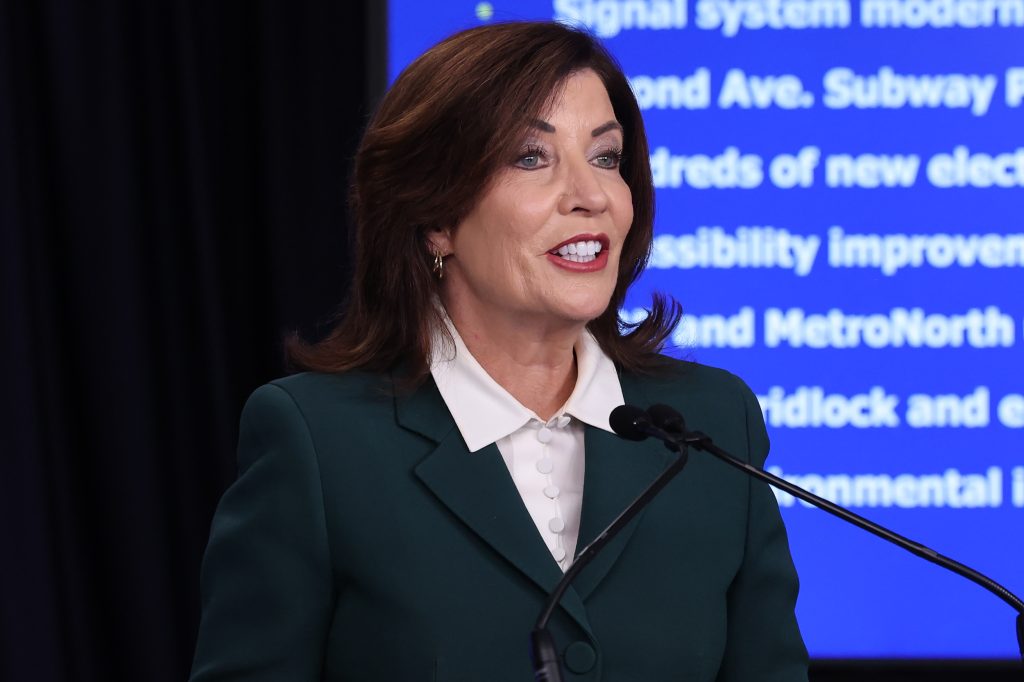New York State has embarked on a groundbreaking initiative to hold fossil fuel companies financially accountable for their contribution to climate change. Governor Kathy Hochul recently signed legislation establishing a “Climate Change Adaptation Cost Recovery Program,” effectively creating a “Climate Superfund.” This program mandates that major fossil fuel companies, identified as significant greenhouse gas emitters between 2000 and 2018, contribute financially to a state fund dedicated to mitigating future climate change damage and repairing existing impacts. This marks a significant shift in policy, transferring the financial burden of climate adaptation from taxpayers to the companies deemed most responsible for the pollution driving the crisis. The funds generated will be allocated towards crucial infrastructure projects designed to enhance the state’s resilience to climate change impacts. These projects encompass a broad range, including coastal wetland restoration, upgrades to critical infrastructure like roads, bridges, and water drainage systems, and other initiatives aimed at mitigating the effects of extreme weather events, which are becoming increasingly frequent and severe due to climate change.
The impetus behind this legislation is the recognition that climate change is already imposing significant costs on New York State, both in terms of environmental damage and economic losses. Extreme weather events, such as hurricanes, floods, and heat waves, are becoming more prevalent and intense, leading to substantial costs for disaster relief, infrastructure repairs, and public health interventions. The new law aims to ensure that the companies whose activities have contributed significantly to climate change share in the responsibility for addressing its consequences. By requiring these companies to contribute to the Climate Superfund, the state aims to secure a dedicated funding stream for critical climate adaptation and resilience projects, relieving the financial burden on taxpayers and ensuring that necessary investments can be made to protect communities and infrastructure.
The legislation has garnered both praise and criticism. Supporters applaud the move as a crucial step towards holding polluters accountable and ensuring that those responsible for contributing to climate change bear a portion of the costs associated with its impacts. They argue that this approach is not only fair but also fiscally responsible, as it leverages the resources of those who have profited from activities that contribute to climate change to fund the necessary adaptations and mitigations. Governor Hochul has hailed the legislation as a landmark achievement, emphasizing its role in shifting the financial burden away from everyday New Yorkers and onto the fossil fuel companies that have played a significant role in creating the climate crisis. Environmental advocates have also celebrated the legislation, viewing it as a vital tool for funding crucial climate resilience projects and protecting communities from the escalating impacts of climate change.
Conversely, critics, particularly within the fossil fuel industry, argue that the legislation unfairly penalizes energy companies and represents an unwarranted intrusion into the free market. The American Petroleum Institute, a prominent industry lobbying group, has characterized the legislation as a “punitive new fee on American energy” and has indicated its intention to explore legal options to challenge the law. They contend that such measures could discourage investment in the energy sector and ultimately harm consumers through higher energy prices. This sets the stage for potential legal battles as the fossil fuel industry is likely to resist the new regulations and seek to overturn them in court.
The implementation of the new law will involve a phased approach. The state will first need to develop and finalize regulations that clearly define the criteria for identifying liable companies and calculating the fines they will be required to pay. This process will likely involve extensive data analysis and consultation with experts to ensure a fair and transparent assessment of each company’s contribution to greenhouse gas emissions. Once the regulations are established, the state will notify the identified companies of their financial obligations and establish a system for collecting the funds and allocating them to approved infrastructure projects. This meticulous process is designed to ensure that the funds are utilized effectively and transparently to maximize their impact on climate resilience.
While the legislation represents a significant step towards addressing the financial burden of climate change adaptation, the road ahead is likely to be fraught with challenges. Legal challenges from the fossil fuel industry are anticipated, which could potentially delay or even derail the implementation of the program. The outcome of these legal battles will ultimately determine the long-term effectiveness of the Climate Superfund and its ability to generate the necessary resources to protect New York State from the escalating impacts of climate change. Furthermore, the success of the program will also depend on the state’s ability to effectively manage the funds and ensure that they are invested in projects that demonstrably enhance climate resilience. This will require careful planning, rigorous oversight, and ongoing evaluation to ensure that the funds are utilized efficiently and achieve their intended purpose.










